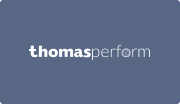In September 2021, UK job vacancies topped one million, the highest number ever recorded. Since then, the Office for National Statistics reports that numbers have continued to climb, although at a slightly slower rate (23% compared with 43% in Q3). Record resignation numbers have produced a major labour shortage, with the retail, automotive and wholesale sectors worst affected.
Recruitment is broken
Why the mass exodus? The pandemic encouraged people not to tolerate a role that doesn’t make them happy, transforming the recruitment landscape. According to our research, two-thirds (60%) of UK workers would leave their current employer within six months if they were unhappy in their role. This figure increases to 96% within 12 months, suggesting that many UK employees could be looking to leave their current employers in the new year. According to Microsoft research, this trend isn’t limited to the UK, with approximately half of the worldwide workforce looking to change jobs within the next 12 months.
What has been dubbed ‘The Great Resignation’ will be make or break for recruitment. Conducted earlier in 2021, our ‘Spotlight on Recruitment’ research report revealed an industry already in crisis. As many as 57% of new hires don’t work out according to the individuals who made the hire, our research study found. With companies struggling to hire for key positions due to the labour shortage, broken recruitment processes could be catastrophic. That is, if recruitment professionals fail to address the issues uncovered in the report. Companies need to be able to make hiring decisions quickly, and with surety that new recruits are suitable both technically and behaviourally for their new roles.
Revitalising recruitment
Luckily, some companies have succeeded in growing their workforces with well-matched new hires and can act as a precedent for other companies struggling with the labour shortage. One such business is Australian Diversity and Inclusion consultancy The Dream Collective, which grew its headcount by a quarter despite the pressures of the pandemic. In order to recruit the senior-level talent required for rapid and sustainable growth, The Dream Collective leveraged the data from Thomas’ Personality assessment to validate hiring decisions. As a result, the business could hire more quickly, catalysing commercial growth.

"Thomas International were instrumental in supporting our organisation in understanding our people and implement sustainable initiatives in our business for success. Additionally, we are now far smarter when it comes to recruiting candidates and ascertaining if they will be a great fit within our culture."
- Josh Hallam, General Manager, The Dream Collective
Thanks to implementing Thomas’ Behaviour assessment, The Dream Collective has been able to verify that hires in key roles have the right skills, traits and behavioural characteristics to take the business and - crucially for the diversity and inclusion consultancy, the brand - forward. The consultancy has also benefitted from greater insight into what a good fit looks like, and more structured and effective onboarding of new recruits. The personality insights provided by the assessment have also improved communication within the business, contributing to significant productivity gains and reduced project delivery time. Using Thomas’ PPA assessment has cut both the time and costs involved in recruitment, liberating the business to focus on further growth.
Aptitude to the rescue
Personality offers a vital insight into the behavioural fit of candidates for roles, but it isn’t the only weapon with which recruitment professionals can combat the labour shortage. According to research, the top predictor of candidates’ success in a new role is cognitive ability or ‘aptitude’. Experience, or the contents of an applicant’s CV are a comparatively unreliable predictor of in-role performance (Schmidt, 2016). To unlock a wider talent pool of less experienced but better performing candidates, hiring managers can switch their focus to assessing candidates’ fluid intelligence to ascertain their level of aptitude for learning ‘on the job’, and their potential for ongoing development.
During an acute skills shortage, hiring managers need to know which of their candidates have the potential to onboard successfully, learn the required skills quickly, and steer their organisations to greater heights. Aptitude assessments focus on a range of cognitive skills. Thomas’ assessment covers individuals’ abilities to reason (Reasoning), detect errors (Perceptual Speed), and process numbers (Number Speed & Accuracy), words (Word Meaning) and visual information (Spatial Visualisation).
Naturally, some of these skills will be vital in certain job functions, while others may be less essential. So, knowing which skills are the most important to the position will help you create a job profile to recruit against, increasing the efficiency of your recruitment process. Recruiters should look for a high score in the areas required by the role, unless it requires repetitive or methodical work, in which case a lower score be preferable, as it is indicative of someone who is likely to stick at such tasks for longer without becoming disengaged.
Assessing candidates against a role profile that includes aptitude and personality can both substantiate and accelerate hiring decisions, leading to improved recruitment outcomes. You can learn more about assessing Aptitude here and gain more insight into what’s not working for recruitment by downloading the full Spotlight on Recruitment research report.



